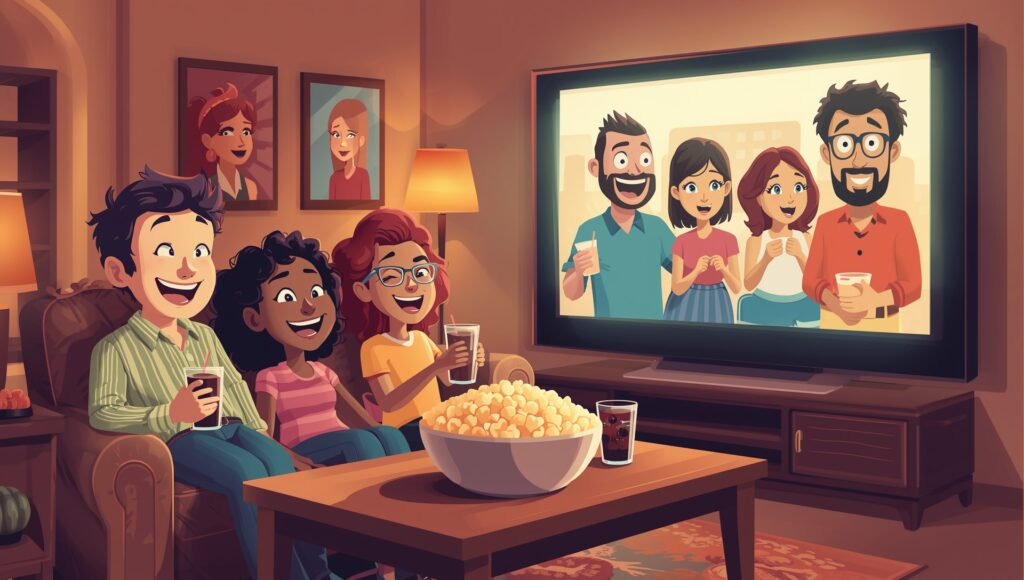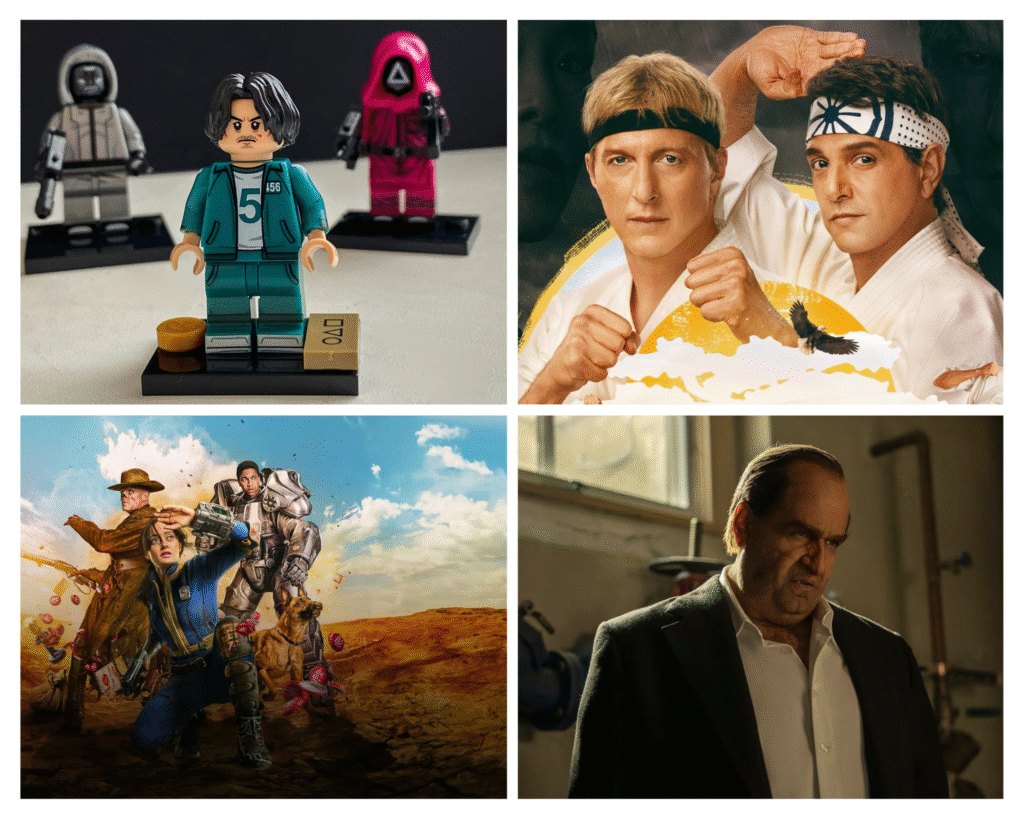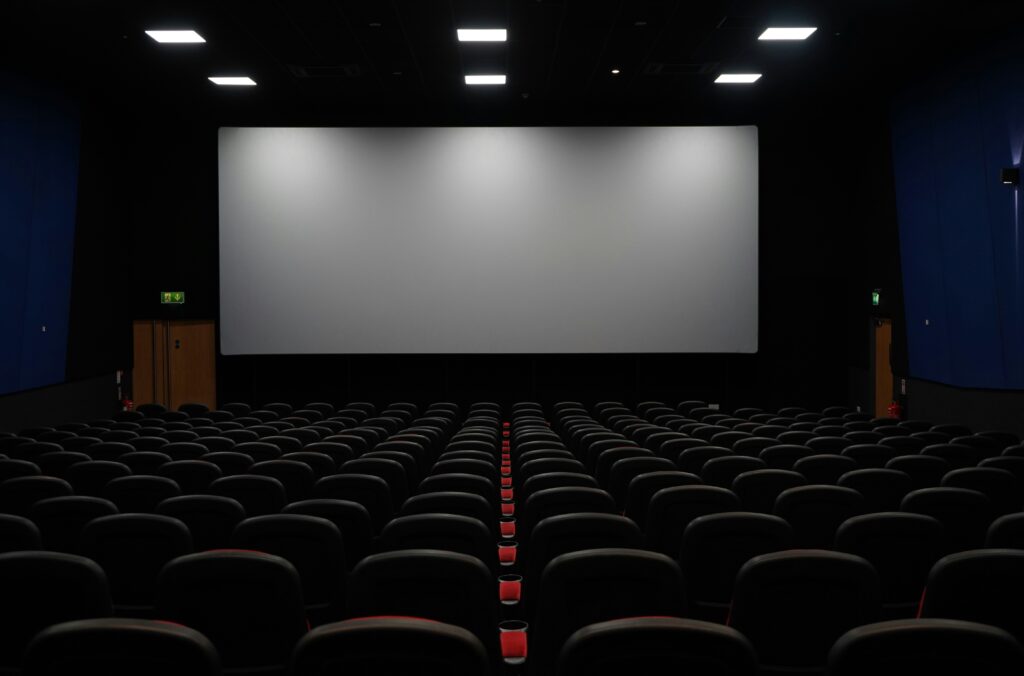
Last Updated: August 2025
TL;DR:
- Seinfeld dominates as #1 across multiple authoritative rankings
- I Love Lucy revolutionized television comedy and remains timeless
- The Office (both versions) redefined mockumentary format
- Friends created the template for modern ensemble sitcoms
- Cheers established the gold standard for workplace comedies
- Rankings based on critical acclaim, cultural impact, and lasting influence
Introduction
Comedy television has the unique power to unite generations, transcend cultural barriers, and provide comfort during challenging times. After analyzing multiple authoritative sources including Rotten Tomatoes’ comprehensive 200 Best Comedy Series ranking, critic polls, and cultural impact studies, we’ve identified the five comedy shows that have fundamentally shaped television and continue to influence comedy today.
These aren’t just the funniest shows they’re the series that changed the medium, launched careers, and created comedy blueprints still used by writers and producers worldwide.
The Methodology: How We Ranked the Greatest
Evaluation Criteria:
- Critical Acclaim: Professional reviews and Tomatometer scores
- Cultural Impact: Influence on subsequent shows and popular culture
- Longevity: Continued relevance and rewatchability decades later
- Innovation: How the show advanced comedy television
- Industry Recognition: Awards, accolades, and peer recognition
Sources Consulted:
- Rotten Tomatoes 200 Best Comedy Series
- Entertainment Weekly critic polls
- Rolling Stone television rankings
- Industry award recognition (Emmys, Golden Globes)
- Cultural impact analysis and viewership data
#5: Cheers (1982-1993)
The Show That Made Everyone Want to Go Where Everybody Knows Your Name
Why It’s a Comedy Legend: Cheers established the template for workplace ensemble comedy that countless shows still follow today. Set in a Boston bar, the series proved that character development and relationship dynamics could sustain comedy for over a decade without losing steam.
Revolutionary Elements:
- Character-driven comedy: Jokes emerged from personalities rather than situations
- Ensemble balance: Every character had distinct comedic voice and purpose
- Long-form storytelling: Season-spanning character arcs in comedy
- Workplace as family: The bar regulars became television’s first chosen family
Critical Acclaim:
- 117 Emmy nominations and 28 Emmy wins during its 11-season run
- Guinness World Record: Most Emmy nominations for a comedy series at the time
- Rotten Tomatoes ranking: Consistently appears in top 20 comedy lists
- Cultural legacy: Referenced and parodied across decades of television
Lasting Impact: The “workplace as family” concept pioneered by Cheers directly influenced The Office, Parks and Recreation, and countless other workplace comedies. The show’s blend of humor and heart became the gold standard for ensemble sitcoms.
Signature Episode: “Coach’s Daughter” (Season 1, Episode 4) – Perfectly demonstrates the show’s ability to balance comedy with genuine emotion.
#4: Friends (1994-2004)
The Show That Defined a Generation and Changed Television Forever
Why It Remains Iconic: Friends didn’t just entertain it created a cultural phenomenon that continues to influence how we think about friendship, relationships, and young adulthood. The show’s impact extends far beyond comedy into fashion, language, and social behavior.
Cultural Revolution:
- The “Friends Effect”: Changed how young adults approached living arrangements and career expectations
- Catchphrase generation: “How you doin’?”, “We were on a break!”, and dozens of others entered everyday language
- Fashion influence: Jennifer Aniston’s “Rachel” haircut became a global phenomenon
- Streaming success: Remains one of the most-watched shows on streaming platforms
Comedy Innovation:
- Rapid-fire dialogue: Elevated the pace of sitcom conversations
- Pop culture integration: Seamlessly wove contemporary references into storylines
- Romantic comedy format: Extended movie rom-com formula across 10 seasons
- Guest star template: Created blueprint for celebrity cameos in sitcoms
Awards and Recognition:
- 62 Emmy nominations and 6 Emmy wins across its decade run
- Won Outstanding Comedy Series for Season 8 (2002)
- Consistent top 5 placement in “Greatest Sitcoms” lists
- Global impact: Successfully translated across cultures worldwide
Why It Still Matters: Friends proved that ensemble chemistry could carry a show without a traditional “star.” Its influence on modern comedy is immeasurable, from How I Met Your Mother to New Girl.
Signature Episode: “The One Where Everybody Finds Out” (Season 5, Episode 14) – Peak ensemble comedy showcasing every character’s distinct humor.
#3: The Office (UK 2001-2003, US 2005-2013)
The Mockumentary Revolution That Redefined Comedy Television
Why Both Versions Made the List: The Office fundamentally changed television comedy by proving that cringe humor and documentary-style filming could create both comedy gold and genuine emotional investment. The British original and American adaptation each contributed unique elements to comedy television.
The British Original (Ricky Gervais & Stephen Merchant):
- Cringe comedy perfection: Uncomfortable humor that felt painfully real
- Documentary realism: Convinced viewers they were watching real office workers
- David Brent: Created the template for the clueless, inappropriate boss character
- Short and perfect: 12 episodes plus specials, no filler
The American Adaptation (Greg Daniels):
- Character development mastery: Transformed cringe into warmth over 9 seasons
- Jim and Pam: Created television’s most beloved workplace romance
- Michael Scott: Steve Carell’s portrayal added heart to the inappropriate boss archetype
- Ensemble expansion: Developed supporting characters into comedy gold
Revolutionary Impact:
- Mockumentary mainstream: Inspired Parks and Recreation, Modern Family, What We Do in the Shadows
- Workplace comedy evolution: Showed how mundane office life could be endlessly funny
- Character empathy: Proved cringe comedy could coexist with genuine affection for characters
- Streaming phenomenon: The US version became Netflix’s most-watched series
Critical Recognition:
- UK version: BAFTA wins, Golden Globe for Gervais
- US version: Emmy wins, Peabody Award, Directors Guild recognition
- Rotten Tomatoes: Both versions consistently rank in top 10 comedy series
Signature Episodes:
- UK: “Training” (Season 1, Episode 4)
- US: “Dinner Party” (Season 4, Episode 13)
#2: I Love Lucy (1951-1957)
The Show That Invented Modern Television Comedy
Why It’s the Foundation of Everything: I Love Lucy didn’t just entertain it literally created the template for situation comedy that every subsequent show has built upon. Lucille Ball and Desi Arnaz innovated both in front of and behind the camera in ways that still influence television production today.
Revolutionary Innovations:
- Three-camera setup: Filmed with multiple cameras before live audience, standard practice today
- Rerun concept: First show designed to be profitable in syndication
- Husband-wife team: Groundbreaking interracial marriage on television
- Physical comedy mastery: Ball’s slapstick remains unmatched in television history
Cultural Breakthroughs:
- Pregnancy on TV: First show to feature pregnant woman (even though they couldn’t say “pregnant”)
- Working woman: Lucy’s schemes often involved trying to break into show business
- Multi-generational appeal: Humor that worked for children and adults simultaneously
- Global influence: Format exported worldwide, inspiring international adaptations
Technical Excellence:
- Film quality: Shot on 35mm film instead of kinescope, preserving quality
- Live audience energy: Captured authentic laughter and timing
- Production control: Desilu Productions pioneered independent television production
- Innovation under constraints: Censorship limitations led to creative comedy solutions
Lasting Legacy:
- Template creation: Established situation comedy format still used today
- Star vehicle model: Showed how comedian’s personality could anchor series
- Syndication success: Continuous broadcast for over 70 years
- Industry influence: Paved way for female producers and performers
Awards and Recognition:
- Emmy wins: Including Outstanding Comedy Series
- Rotten Tomatoes: #1 on multiple “Greatest Sitcoms” lists
- AFI recognition: American Film Institute’s top comedy series
- Cultural preservation: Selected for National Film Registry
Signature Episode: “Job Switching” (Season 2, Episode 1) – The chocolate factory conveyor belt scene remains television’s most iconic comedy moment.
#1: Seinfeld (1989-1998)
The Undisputed Champion: The Show About Nothing That Changed Everything
Why Seinfeld Reigns Supreme: In virtually every authoritative ranking of comedy television, Seinfeld consistently claims the #1 spot. The show didn’t just entertain it fundamentally altered the DNA of television comedy. Its influence extends beyond entertainment into language, social behavior, and how we understand modern urban life.
The “Show About Nothing” Revolution:
- Anti-sitcom structure: No hugging, no learning, no traditional moral lessons
- Everyday absurdity: Found comedy in minor social interactions everyone experiences
- Character flaws as features: Main characters were openly selfish and petty
- Circular storytelling: Multiple plotlines that intersected in unexpected ways
Cultural Dominance:
- Language creation: Phrases like “yada yada yada,” “soup Nazi,” “close talker,” and “low talker” entered permanent vocabulary
- Social observation: Commentary on modern behavior that feels prophetic today
- Quotability factor: Virtually every episode contains multiple quotable moments
- Universal relatability: Scenarios that resonate across demographics and decades
Comedy Innovation:
- Rapid-fire dialogue: Elevated conversational comedy to art form
- Pop culture integration: Seamlessly incorporated contemporary references without dating the show
- Character consistency: Each character maintained distinct voice and perspective throughout 180 episodes
- Observational mastery: Jerry Seinfeld’s stand-up sensibility elevated TV writing
Critical and Commercial Success:
- Emmy recognition: Multiple nominations and wins
- Rotten Tomatoes: #1 on their 200 Best Comedy Series list
- Industry influence: Cited by virtually every comedy writer as inspiration
- Syndication gold: Generates hundreds of millions annually decades after ending
Cultural Impact Measurements:
- Streaming dominance: Remains top comedy choice across all platforms
- Academic study: Subject of university courses and scholarly analysis
- International recognition: Successfully translated across cultures globally
- Influence tracking: Direct lineage visible in Curb Your Enthusiasm, It’s Always Sunny, and countless others
The Seinfeld Standard: The show established benchmarks that comedy series still aspire to:
- Character-driven plots over situation-driven comedy
- Ensemble chemistry where every character is essential
- Observational humor that finds comedy in universal experiences
- Quotable dialogue that becomes part of cultural conversation
Awards and Accolades:
- 10 Emmy nominations for Outstanding Comedy Series
- Golden Globe wins for Jerry Seinfeld
- Writers Guild Awards for exceptional writing
- TV Guide recognition: Named Greatest TV Show of All Time
- Rolling Stone: #1 on Best Sitcoms list
Signature Episode: “The Contest” (Season 4, Episode 11) – Proves the show could create comedy gold from topics other shows wouldn’t touch, while maintaining broadcast standards.
Why Seinfeld Remains #1: Unlike other great comedies that may feel dated or tied to specific eras, Seinfeld’s observational humor about human behavior remains eternally relevant. The show’s influence appears in virtually every comedy that followed, and its “show about nothing” approach freed television comedy from traditional sitcom constraints.
The Runner-Ups: Honorable Mentions
Shows That Just Missed the Top 5:
The Simpsons: Revolutionary animated comedy that created adult cartoon genre and cultural commentary through humor.
30 Rock: Tina Fey’s behind-the-scenes comedy that perfectly satirized television industry while delivering rapid-fire jokes.
Arrested Development: Pioneered serialized comedy with intricate callbacks and layered storytelling.
The Mary Tyler Moore Show: Groundbreaking workplace comedy featuring independent single woman protagonist.
All in the Family: Norman Lear’s controversial comedy that tackled social issues through humor.
The Evolution of Comedy Television
How These Shows Built Upon Each Other:
I Love Lucy → Cheers: Physical comedy evolved into character-driven ensemble comedy
Cheers → Friends: Workplace family concept expanded to chosen family of friends
Friends → Seinfeld: Relationship comedy evolved into observational social commentary
Seinfeld → The Office: Traditional sitcom format challenged by documentary realism
The Office → Modern Comedy: Mockumentary format influenced current comedy landscape
What Makes a Comedy Timeless?
Lessons from the Greatest:
Universal Themes: All top comedies address universal human experiences friendship, work, family, dating that resonate across generations.
Character Depth: The greatest comedy characters are flawed, recognizable people rather than joke delivery systems.
Cultural Observation: Top comedies serve as time capsules while addressing timeless human behavior.
Rewatchability Factor: Great comedy reveals new jokes and character moments on repeated viewing.
Influence and Legacy: The greatest shows inspire and influence subsequent generations of comedy creators.
The Modern Comedy Landscape
How Current Shows Measure Against the Classics:
Streaming Era Impact: Binge-watching has changed how comedy is consumed and structured.
Diversity Evolution: Modern comedies feature more diverse voices and perspectives than classic shows.
Serialization Trend: Contemporary comedies blend episodic and serialized storytelling.
Global Perspective: International comedy formats increasingly influence American television.
Contemporary Contenders:
While too recent for “all-time” status, shows like Atlanta, The Good Place, Brooklyn Nine-Nine, and Ted Lasso demonstrate comedy television’s continued evolution and vitality.
Bottom Line: Why These Five Rule Forever
The greatest comedy shows transcend entertainment to become cultural touchstones. I Love Lucy created the foundation, Cheers perfected ensemble dynamics, Friends defined generational comedy, The Office revolutionized format, and Seinfeld achieved observational perfection.
Each show on this list didn’t just make people laugh they changed how comedy television was made and consumed. Their influence appears in virtually every comedy series that followed, and their continued popularity across streaming platforms proves their timeless appeal.
The Ultimate Test: Great comedy ages like fine wine, revealing new layers of humor and insight with each viewing. These five shows pass that test with flying colors, remaining as fresh and funny today as when they first aired.
Reader Challenge: Watch one episode from each of these series and notice how many modern comedy shows have borrowed elements from these classics. The DNA of today’s comedy television can be traced directly back to these five groundbreaking series.
What Do You Think: Which of these five comedies has influenced your sense of humor the most, and do you believe any modern shows have the potential to join this elite group?
Disclaimer: This blog post was generated with the help of artificial intelligence. Readers are encouraged to verify facts independently.


